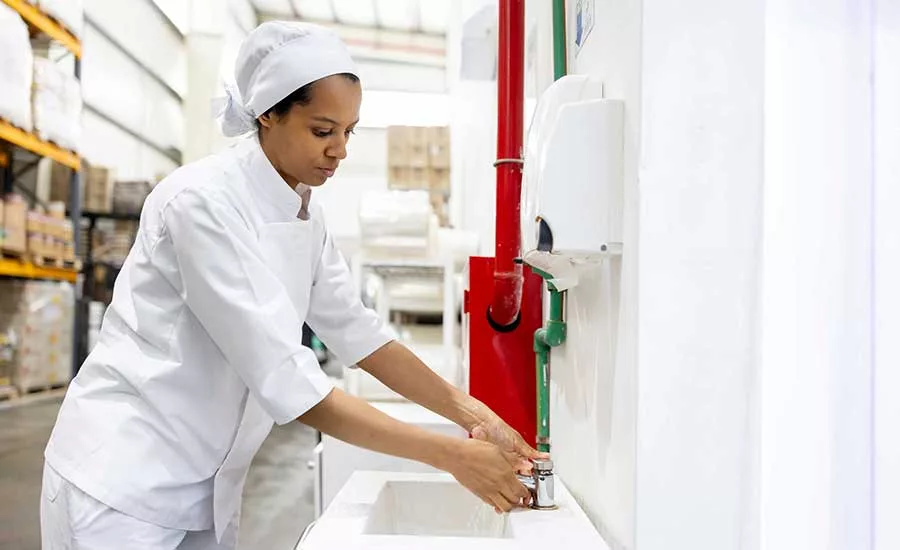Liability for Imported Foods & the Foreign Supplier Verification Program
It has been reported that approximately 15 percent of all food in the United States is imported. The U.S. Centers for Disease Control and Prevention estimates overall that “48 million Americans (1 in 6) get sick, 128 are hospitalized and 3,000 die from foodborne disease”[1] and the U.S. Food and Drug Administration (FDA) in turn estimates 36.9 percent of the 960 Class I and Class II recalls were “[d]irectly linked to lack of supplier controls.”[2] Supplier safety is a big issue for U.S. companies and consumers.
Importers cannot ignore the conditions of their suppliers’ fields, manufacturing plants and packaging operations. One of the fresh produce outbreaks was caused by pickers’ children being present in the field and their fecal matter contaminating the produce during harvesting and packaging. Plaintiffs sued and asserted the importers failed to exercise due care in selecting and monitoring their supplier. The litigation claims had “class warfare” overtones—you picked this supplier because of its low cost and you knew (or had to know) the low cost was driven by lack of money being spent on housing and sanitary stations. That’s dangerous stuff before a jury.
The government has arrived and Food Safety Modernization Act (FSMA) regulations will have a big impact in litigation. Food safety has always been a significant health issue. Yet, domestic and imported food has been treated differently. The same safety standards applied, but regulatory compliance was different. No more. As the FDA itself states, “[c]hange [ha]s com[e].”[3] FSMA is here, and the final version of these regulations will soon be issued. Import regulations are a big part of FSMA. The Foreign Supplier Verification Program (FSVP) is considered to be so important that when FDA considered which FSMA regulations to write first, the FSVP was in the “first wave.”[4]
The goal of the FSVP is to “require importers to verify that their suppliers are in compliance with reasonably appropriate risk-based preventive controls that provide the same level of public health protection as those required under FSMA” (emphasis added).[5] The terms “reasonably” and “risk-based” do not sound like strict liability. They sound, rather, like fair measuring sticks. A company’s compliance with FSVP regulations may, if the litigation involves due care concepts and depending on state law, assist a company in mounting a defense that it acted reasonably and appropriately.[6] In the past, plaintiffs proceeded on traditional negligence, breach of warranty and strict liability theories. Plaintiffs have begun to push and assert a private right of action based on the Food, Drug and Cosmetic Act’s nonadulteration provision. The Act has a criminal enforcement mechanism, but plaintiff lawyers have latched on to the statute because it imposes strict liability. There is a vigorous legal debate whether plaintiffs can allege a private right of action under the Act[7] or whether plaintiffs can boot-strap the Act by alleging a negligence per se claim (violation of a statute can constitute negligence).[8] But if due care principles apply, companies should use their importer verification compliance as much as possible in building a litigation shield.
Prior Supplier Control
Minimization of hazards is the touchstone of any food safety plan. The National Advisory Committee on Microbiological Criteria for Foods was chartered by the U.S. Department of Agriculture to provide guidance on the components of a Hazard Analysis and Critical Control Points (HACCP) plan, and the Advisory Committee noted, “HACCP is designed for use in all segments of the food industry from growing, harvesting, processing, manufacturing, distributing and merchandising to preparing food for consumption.”[9] One might think the HACCP guidelines were restricted to manufacturers, but the Advisory Committee placed the following standard of care upon importers: “Supplier Control. Each facility should assure that its suppliers have in place effective GMP [good Manufacturing Practices] and food safety programs. These may be the subject of continuing supplier guarantee and supplier HACCP system verification.”[10]
FSMA’s FSVP
FSMA’s FSVP takes supplier control to the next level. FDA views the new import provisions as a “[p]aradigm” or “[g]roundbreaking” shift.[3] Prevention is now required before the food product arrives at the docks. As FDA stated, under the proposed FSMA regulations, “for the first time, importers will be specifically required to have a program to verify the food products they are bringing into the country are safe. Among other things, importers will need to verify that their suppliers are in compliance with reasonably appropriate risk-based preventive controls that provide the same level of public health as those required under FSMA.”[5]
Before discussing what must go into the FSVP, the regulations mandate a company’s FSVP must be developed by a “qualified individual.” The term is defined, but the important point from a litigation perspective is that person—on top of drafting the FSVP—will certainly be a witness at deposition. Thus, readers of this article may find themselves being both the “brains” and “face” of the company.
Looking for quick answers on food safety topics?
Try Ask FSM, our new smart AI search tool.
Ask FSM →
As for the FSVP itself, the proposed rules require importers to conduct a Hazard Analysis assessing hazards likely to occur and likelihood of severity of illness. The Hazard Analysis is permitted to be performed, at least initially, by the foreign supplier. Not so fast, says the government. The FSVP regulations would require importers to engage in verification activities of their suppliers. And that really is the key to the FSVP.
Where importers rely on suppliers to control identified hazards, FDA offers a menu of two options:
Option 1: For SAHCODHA hazards (“serious adverse health consequences or death to humans or animals”), importers must conduct an initial on-site audit and periodic audits, and possibly additional verification activities. For non-SAHCODHA hazards, importers can choose verification types appropriate to the risk. A whole industry stands ready as the FSVP permits third-party companies to conduct the audits.
Option 2: Is considered the more “flexible” approach, because importers have more freedom of verification choices. Verification freedom, like all freedoms, comes at a price, because from a litigation standpoint more choices invariably will result in post-ad hoc criticism from litigation experts.
Conclusion
Supplier verification has arrived in earnest. FSMA’s paradigm shift is to prevent hazards before food arrives in the U.S. There is no doubt a company’s compliance—or noncompliance—with FSVP regulations will play a role in litigation. Although compliance with government regulations is not normally dispositive in litigation, the FSVP should be viewed by companies as providing predictability in hazard control and a means of controlling importer-based liability in food borne illness litigation.
Steve Kramer, Esq., is regional and national trial counsel for Fortune 100 companies. He focuses on product liability, foodborne illness, medical device, toxic tort and commercial litigation.
References
1. www.fda.gov/Food/GuidanceRegulation/FSMA/ucm257980.htm.
2. www.federalregister.gov/articles/2013/01/16/2013-00125/current-good-manufacturing-practice-and-hazard-analysis-and-risk-based-preventive-controls-for-human.
3. www.fda.gov/downloads/Food/GuidanceRegulation/UCM250697.pdf.
4. Center For Food Safety v Hamburg, 954 F. Supp. 2d 965, 969 (N.D. Cal. Apr. 22, 2013).
5. www.fda.gov/food/guidanceregulation/fsma/ucm361902.htm.
6. Frustratingly, compliance with industry standards and governmental regulations is not normally dispositive in products liability litigation. See Rader v. Teva Parental Medicines, Inc., 795 F. Supp. 2d 1143, 1149 (D.Nev. 2011) (“As with the strict liability claim, the court agrees that proof of compliance is not a bar to recovery, but is nonetheless admissible evidence”); Morris v. Cessna Aircraft Co., 834 F. Supp. 2d 622, 641 (N.D.Tex. 2011) (“[t]he Fifth Circuit has repeatedly interpreted Texas law to hold that ‘[c]ompliance with government safety standards constitutes strong and substantial evidence that a product is not defective’”).
7. See Verzani v. Costco Wholesale Corp., __ F. Supp. 2d __, 2010 WL 3911499, at *3 (S.D.N.Y. Sept. 28, 2010) (“The FDCA lacks a private right of action and therefore Verzani cannot rely on it for purposes of asserting a state-law consumer claim under G.B.L. § 349”).
8. See Doe v. Sunflower Farmers Markets, Inc., __ F. Supp. 2d __, 2011 WL 6431396, at *5 (D.N.M. Dec. 13, 2011) (“It is true that district courts remain ‘divided as to whether a negligence per se claim may be based on a standard of care derived from the FDCA’….”).
9. www.fda.gov/Food/GuidanceRegulation/HACCP/ucm2006801.htm#princ/GUIDELINES FOR APPLICATION OF HACCP PRINCIPLES.
10. www.fsis.usda.gov/OPPDE/rdad/FRPubs/00-014R/HACCPPrerequesites.pdf.






